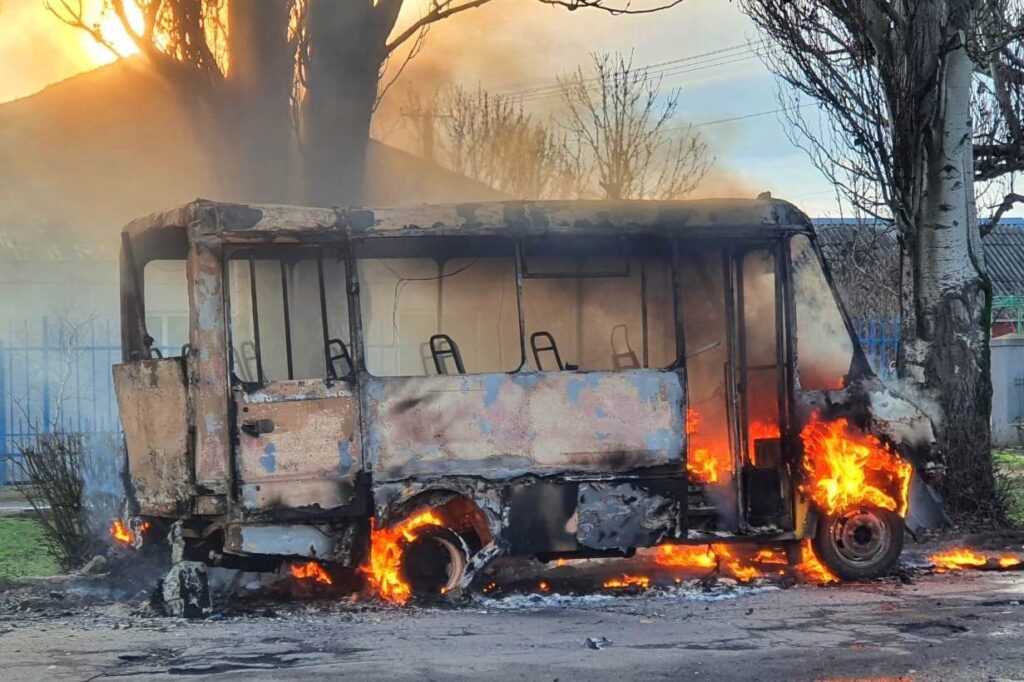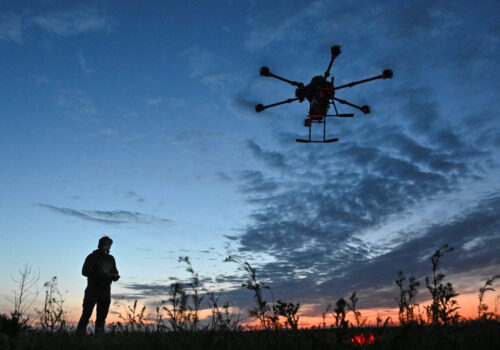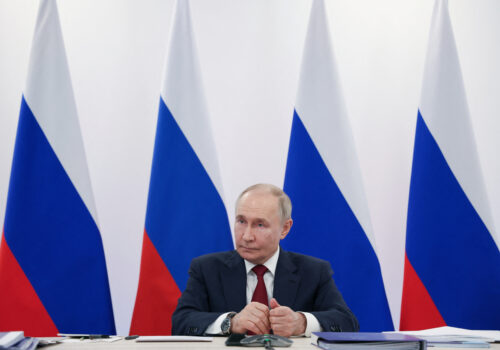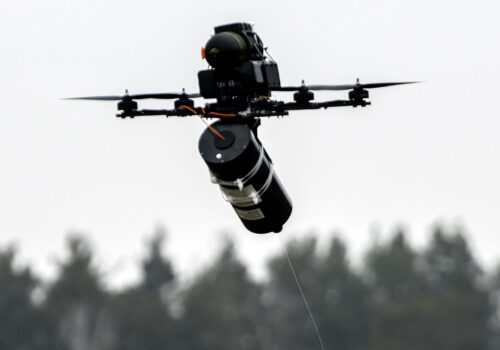Russia is guilty of committing crimes against humanity in southern Ukraine’s Kherson region, according to a new report by the UN’s Independent International Commission of Inquiry on Ukraine. The report comes following an extensive investigation into a campaign of Russian drone strikes on Ukrainian civilians over a ten-month period beginning in July 2024, with the probe focusing on an area of southern Ukraine stretching more than 100 kilometers along the right bank of the Dnipro River around the city of Kherson.
Members of the UN Commission determined that Russia was engaged in the deliberate targeting of civilians and concluded that the drone attacks were “widespread, systematic, and conducted as part of a coordinated state policy.” The report detailed how civilians were targeted “in various circumstances, mainly when they were outdoors, both on foot or while using any type of vehicles,” and noted that on a number of occasions ambulances had been struck by drones in an apparent bid to prevent them from reaching victims and providing vital medical assistance.
During the ten-month period covered by the United Nations probe, Russian drones killed almost 150 Ukrainian civilians in and around Kherson, while leaving hundreds more injured. The constant threat of attack has created a pervasive climate of fear throughout the region, with people afraid to leave their homes. Terrified locals say they feel hunted and refer to the drone attacks as a “human safari.”
In addition to daily drone strikes, Russia has sought to maximize the psychological pressure on residents of the Kherson region via social media channels. UN investigators reported that video footage of drone attacks on Ukrainian civilians is regularly disseminated on Russian Telegram channels, some of which have thousands of subscribers. This video footage shows drone strikes along with the resulting deaths and destruction in the style of video games, often accompanied by background music. Meanwhile, menacing messages posted on Telegram call on Ukrainians to flee the region. “Get out of the city before the leaves fall, you who are destined to die,” read one message quoted in the UN report.
Stay updated
As the world watches the Russian invasion of Ukraine unfold, UkraineAlert delivers the best Atlantic Council expert insight and analysis on Ukraine twice a week directly to your inbox.
This is not the first time UN investigators have accused Russia of committing crimes against humanity in Ukraine. A March 2025 UN report reached a similar conclusion regarding the Kremlin’s large-scale program of detentions and deportations targeting Ukrainians living under Russian occupation. “The evidence gathered led the Commission to conclude that the enforced disappearances against civilians were perpetrated pursuant to a coordinated state policy and amount to crimes against humanity,” the report stated.
Meanwhile, the International Criminal Court in The Hague has issued a number of arrest warrants for senior Russian officials in relation to alleged war crimes committed in Ukraine including the targeted bombing of civilians and critical civilian infrastructure. The most high-profile ICC arrest warrant is for Vladimir Putin himself, who is wanted for his alleged involvement in the mass abduction of Ukrainian children.
At least 20,000 Ukrainian children are believed to have been kidnapped since the start of the full-scale invasion and taken to Russia, where they are subjected to indoctrination to rob them of their Ukrainian heritage and impose a Russian national identity. The nature and scale of these mass abductions may qualify as an act of genocide according to the 1948 United Nations Genocide Convention.
Eurasia Center events

Russia’s deadly “human safari” drone campaign against the civilian population in southern Ukraine’s Kherson region is part of the Kremlin’s strategy to make the area unlivable. The city of Kherson was occupied by the advancing Russian army during the first days of the full-scale invasion and was officially annexed by Russia in September 2022. However, Kherson and the surrounding area were liberated by the Ukrainian military soon after. The scenes of joy that accompanied the liberation of Kherson were deeply humiliating for Putin, who had personally proclaimed the city to be “forever” Russian just weeks earlier.
This setback forced Putin’s invading army to retreat across the Dnipro River, creating a major physical obstacle for the Russian invasion and limiting the occupied zone of Ukraine to the eastern half of the country. Nevertheless, Moscow continues to insist that Kherson and the surrounding region are now part of the Russian Federation and must be handed over within the framework of a future peace deal.
Ukraine has completely ruled out any such concessions. This is hardly surprising. While some temporary territorial compromises may prove possible during peace negotiations, Ukraine’s stance on Kherson is unlikely to change. After all, allowing the renewed Russian occupation of Kherson would be suicidal for Kyiv. It would present Russia with a priceless foothold across the Dnipro River that could be used as a gateway to seize Ukraine’s Black Sea ports and complete the conquest of the country.
For now, Russia appears to have little chance of seizing Kherson militarily or of acquiring the city at the negotiating table. Instead, Moscow seems to be intent on terrorizing local residents and forcing them to flee. Putin claims that the population of the Kherson region are Russians, but he has no qualms about his soldiers using drones to hunt and kill them mercilessly. This tells you all you need to know about Putin’s cynical posturing as the protector of the Russian people in Ukraine.
Peter Dickinson is editor of the Atlantic Council’s UkraineAlert service.
Further reading
The views expressed in UkraineAlert are solely those of the authors and do not necessarily reflect the views of the Atlantic Council, its staff, or its supporters.

The Eurasia Center’s mission is to enhance transatlantic cooperation in promoting stability, democratic values, and prosperity in Eurasia, from Eastern Europe and Turkey in the West to the Caucasus, Russia, and Central Asia in the East.
Follow us on social media
and support our work
Image: Handout / Latin America News Agency via Reuters Connect




